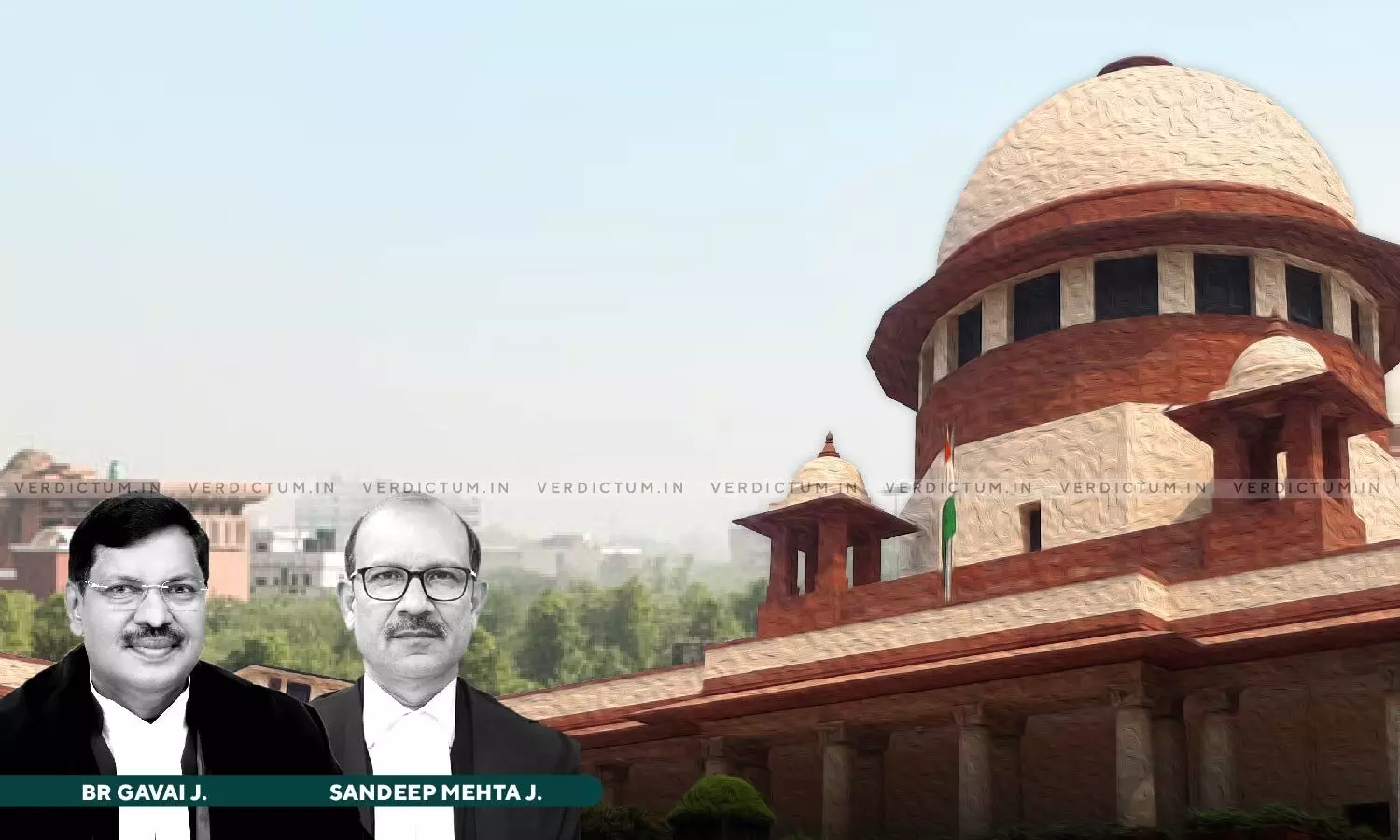
FSL Report Cannot Be Read In Evidence When Proceedings U/S 52A NDPS Act Was Not Undertaken In Presence Of Magistrate: SC Acquits Accused
 |
|The Supreme Court acquitted two people accused of carrying contraband since proceedings under Section 52A of the NDPS Act were not undertaken in the presence of a Magistrate.
The Court said that the FSL report in this regard “nothing but a waste paper and cannot be read in evidence.”
The appellants were accused of transporting 80 kgs of ganja and were subsequently convicted for the offence punishable under Section 8(c) read with Section 20(b)(ii)(c) of the Narcotic Drugs and Psychotropic Substances Act, 1985 (NDPS Act) and were sentenced to undergo a rigorous imprisonment of ten years.
The appellants had argued that the independent panch witnesses associated with the search and seizure of the contraband were not examined in evidence. Hence, the entire search and seizure proceedings “become doubtful and are vitiated.” They further argued that of the three bags seized, one contained green chillies and no effort was made to segregate the chillies from the alleged contraband.
The Court clarified that the case set up by the prosecution was regarding the recovery of narcotics from a vehicle which was stopped during transit
Justice B.R. Gavai and Justice Sandeep Mehta observed, “Seizure Officer…made no effort whatsoever to conduct a separate weighment of the contraband by segregating the chillies. Rather, the panchnama is totally silent about presence of chillies with the bundles of ganja. Thus, it cannot be said with any degree of certainty that the recovered ganja actually weighed 80 kgs.”
Sr. Advocate C. Nageswara Rao represented the appellants, while Advocate Kumar Vaibhaw appeared for the respondent.
The Court noted, “The two independent panch witnesses i.e. Shareef Shah and Mithun Jana who were associated in the recovery proceedings, were not examined in evidence and no explanation was given by the prosecution as to why they were not being examined.”
The Court remarked that the prosecution had neither examined any witness nor produced any document to satisfy the Court regarding safe keeping of the samples right from the time of the seizure till the same reached the Forensic Science Laboratory (FSL).
The Court pointed out several issues including missing witnesses and documentation, contradictory testimonies about sample counts and handling procedures, and a lack of official seals and documentation for safekeeping. The Court stated that such discrepancies “completely shatters the prosecution case.”
The Court noted that there were no proceedings under Section 52A of the NDPS Act which were undertaken by the Investigating Officer for preparing an inventory and obtaining samples in the presence of a jurisdictional Magistrate. Therefore, the FSL report was “nothing but a waste paper and cannot be read in evidence.”
The Court held that the appellants were convicted by the Telangana High Court and the trial court in a “sheerly mechanical manner without there being on iota of evidence on record of the case so as to hold them guilty.”
Accordingly, the Supreme Court set aside the conviction and sentence and allowed the appeal.
Cause Title: Mohammed Khalid & Anr. v. The State Of Telangana (Neutral Citation: 2024 INSC 158)
Appearance:
Appellants: Sr. Advocate C. Nageswara Rao; AOR Vikram Hegde and Praseena Elizabeth Joseph; Advocates Chitwan Sharma, Chinmayi Shrivastava, Shreeyash Uday Lalit and Tushar Singh
Respondent: AOR Devina Sehgal; Advocate Kumar Vaibhaw and Mohd. ashaab